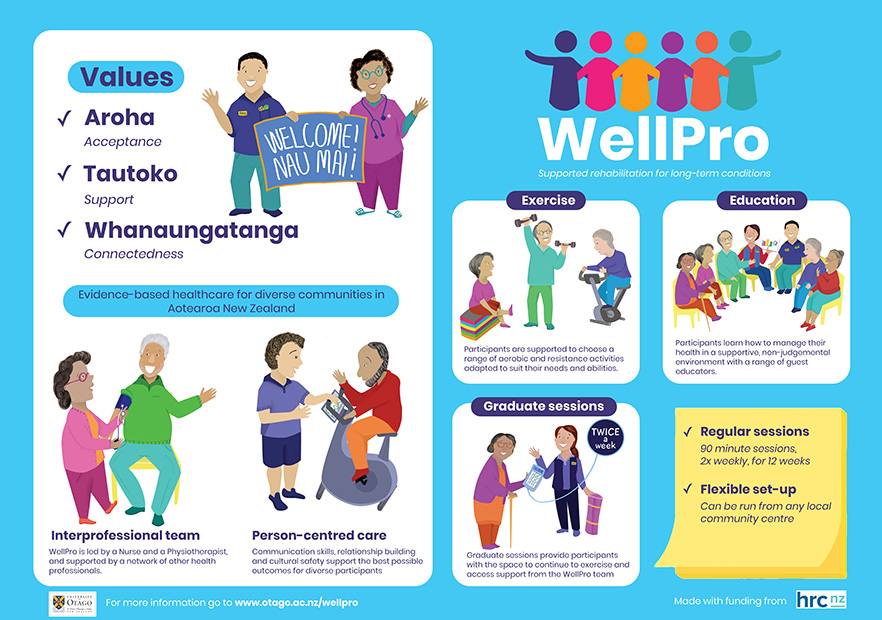About WellPro
WellPro is an innovative Wellbeing Programme that provides supported rehabilitation for people with long-term conditions. Over 12 weeks, WellPro participants set individual goals and develop self-management strategies for their long-term conditions.
WellPro is led by an interprofessional team. At the core of the team is a nurse and physiotherapist who run the programme together with implementation support from a manager and administrator and educational support from healthcare specialists.
WellPro is flexible, allowing it to be run from community halls or other multipurpose facilities. It requires basic exercise equipment and health and safety monitoring equipment. WellPro sessions are 90 minutes long and run two times a week. Each session includes interactive education and group exercise. Whānau, partners and friends are welcome to join in.
Once the 12 week programme is completed, participants are invited to continue managing their wellbeing, with the support of the WellPro team, by attending regular graduate sessions.
WellPro and DCEP
WellPro has been developed from our DCEP research project by providing an implementation package to support other groups and organisations to run classes similar to DCEP for people living with long-term conditions. The resources below were created as part of a collaboration with Danielle Parke and Professor Nancy Longnecker from the Department of Science Communication. Danielle's Master's project was supported with funding from HRC, School of Physiotherapy, and NSC Healthier Lives.
WellPro video
Thank you to all of the participants who were a part of this project.
WellPro infographic
The below infographic was designed by Danielle Parke. The infographic reflects findings from interviews with DCEP participants and Health Professionals and has been modified to reflect a class that supports anyone with a long-term condition.

Further information
For further information about the support package, contact DCEP clinical lead Chris Higgs chris.higgs@otago.ac.nz
